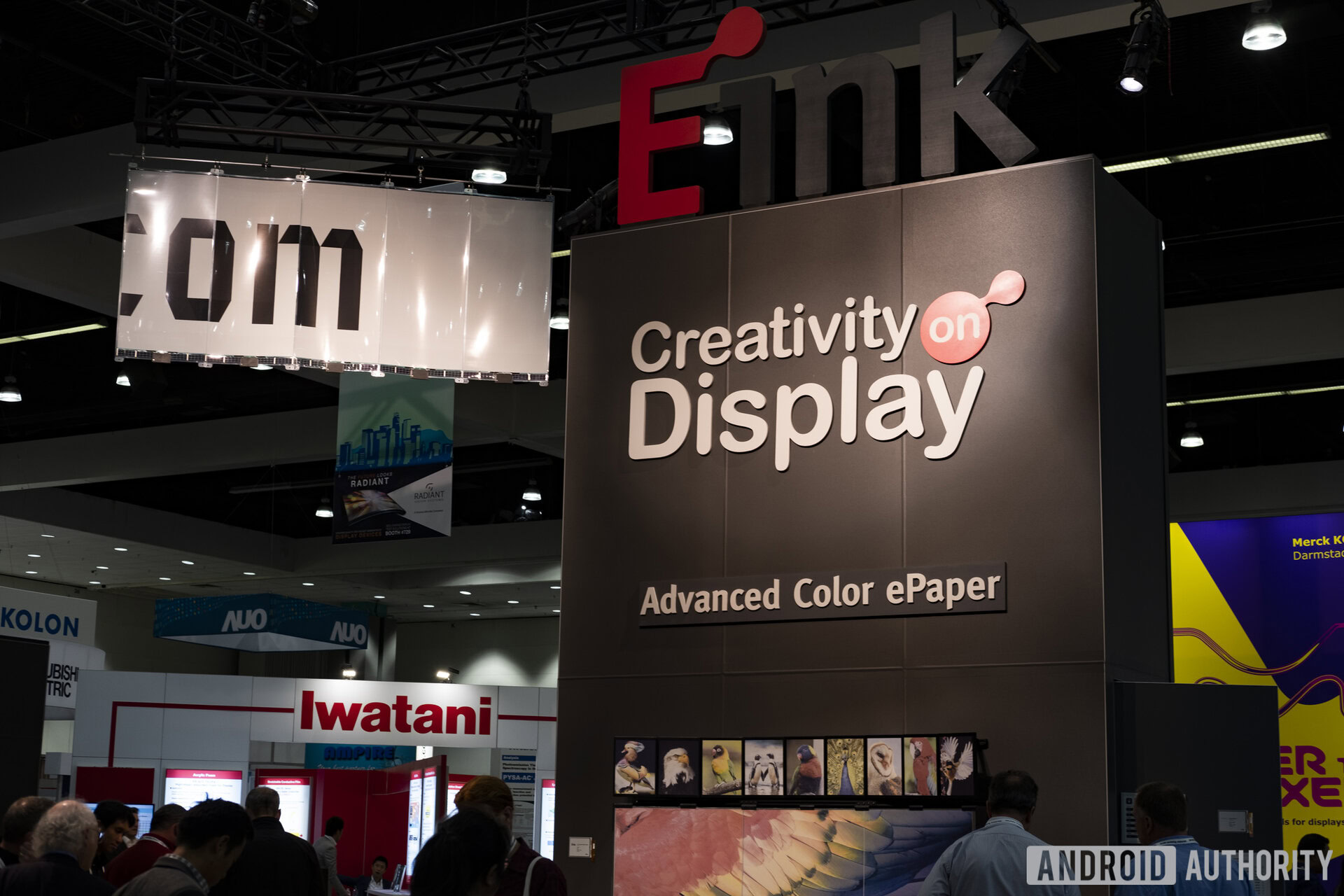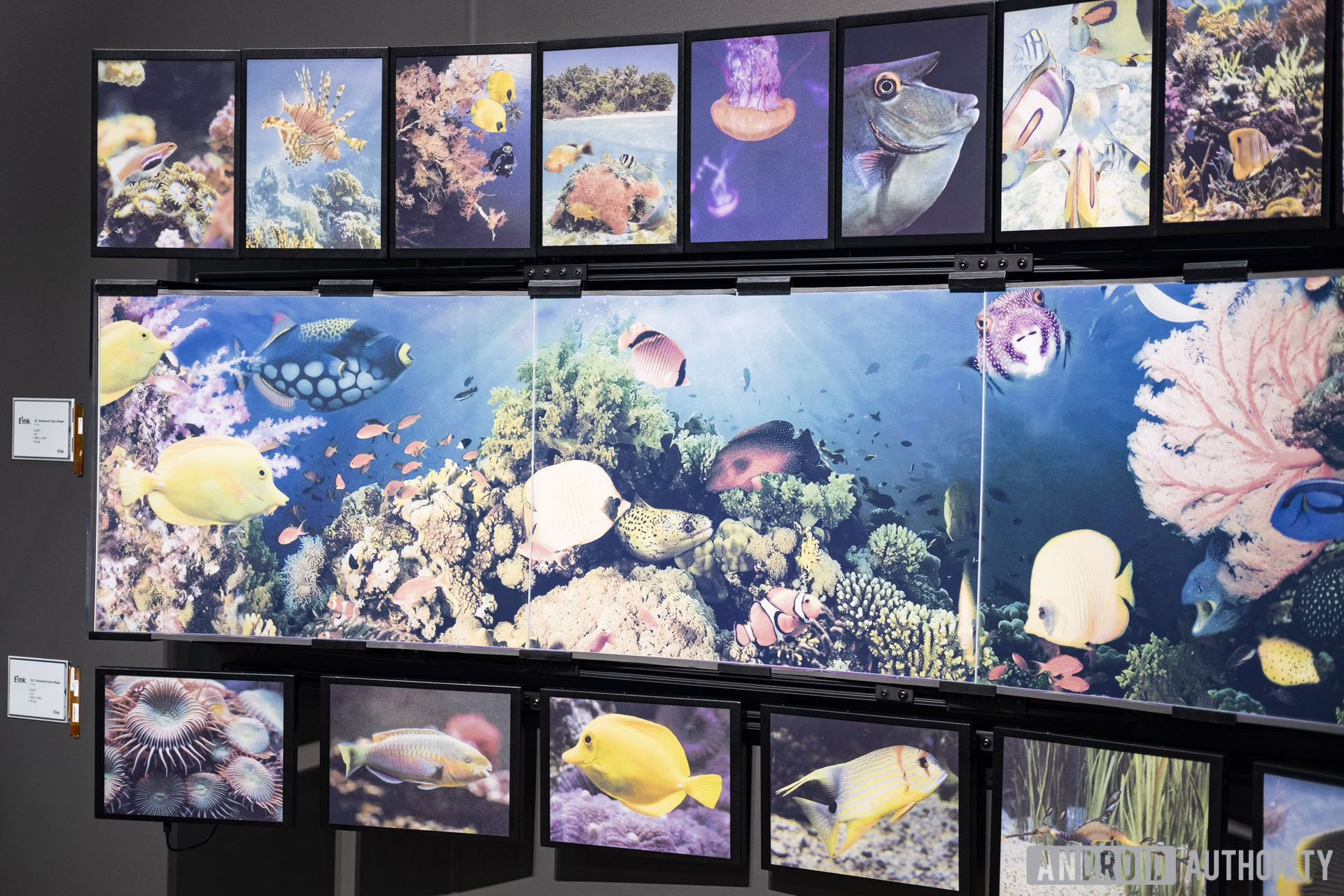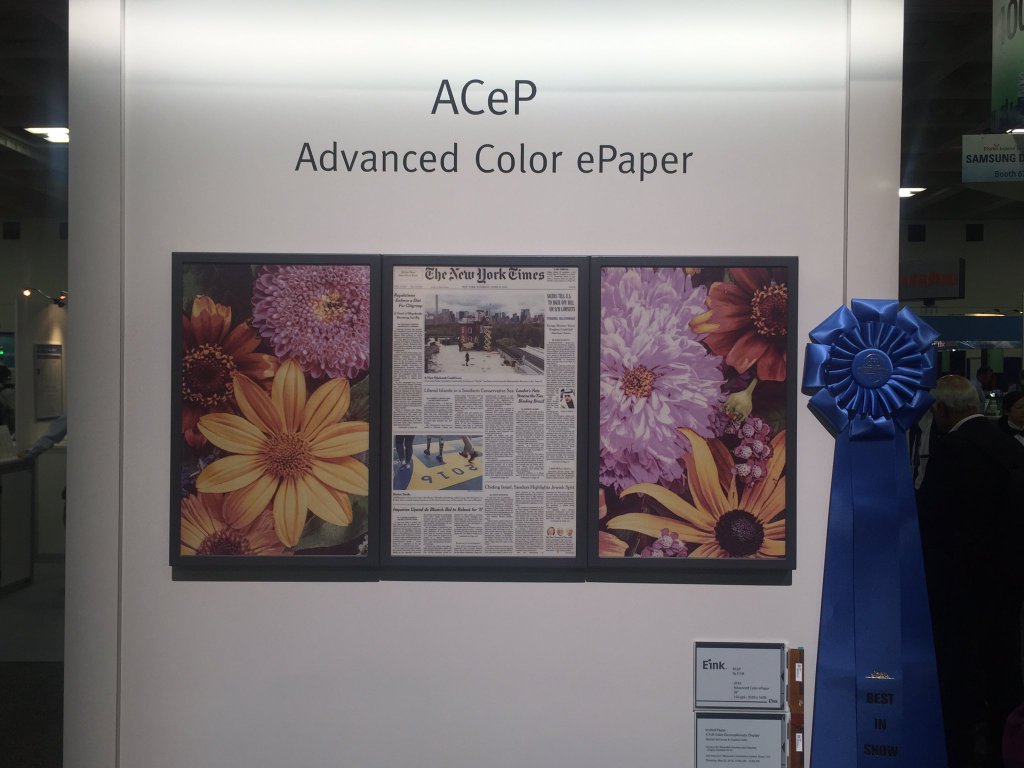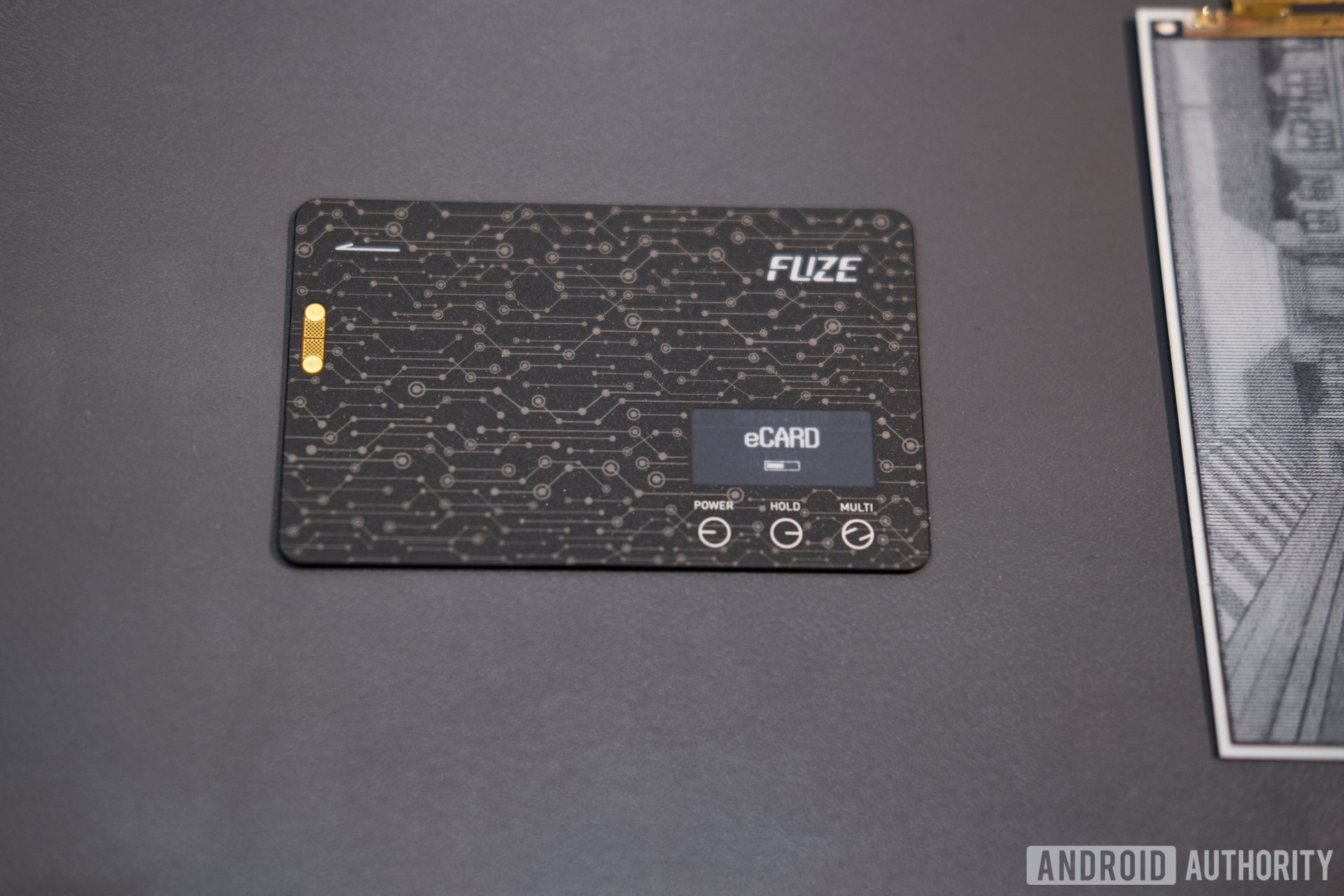Affiliate links on Android Authority may earn us a commission. Learn more.
Display Week 2018: A look at the future of E Ink displays
May 25, 2018

Display Week 2018 has been filled with ultra-high-res OLEDs, sound-emitting panels, and more, but the one company that really stuck out this year was E Ink. You might know its technology from products like the Amazon Kindle and the YotaPhone. The company has been using ultra low-power ink technology to create static images on displays, and had a number of new demos to showcase all the new products the technology is being injected into.

The first set of displays showcased on the wall showed full-color E Ink which would switch images every minute or so. These images gave the impression they were drafted by something like a colored pencil, and looked much more “authentic” than a traditional display. I could see this tech being injected into e-readers, allowing users to read things like magazines where most of the content is text but images are present every now and then.
The company also showed off a few different monochrome panel arrays. While this wasn’t quite as new as the colored ink, it gave a really cool and professional effect. This panel changed between lions and some horses, and I cold see this being displayed in a gallery somewhere.

This tech isn’t only used for art and e-readers though. E Ink showed off a couple of wearables that are using the technology, including a smart band called Tago and a Sony and Epson smartwatch. One of the biggest issues that plague smartwatches today is the the crummy battery life, and E Ink could help solve this problem. The technology only uses battery power when it is switching the state of the ink, and that is quite infrequent in applications like this.

Beyond this, there were a few other applications, like credit cards that can hold multiple accounts and have a super low-energy screen using E Ink tech. While this isn’t brand new technology, it’s quite cool to see it in person, and the whole booth made it evident that this could be the future of low-energy multi-state screens.
Thank you for being part of our community. Read our Comment Policy before posting.